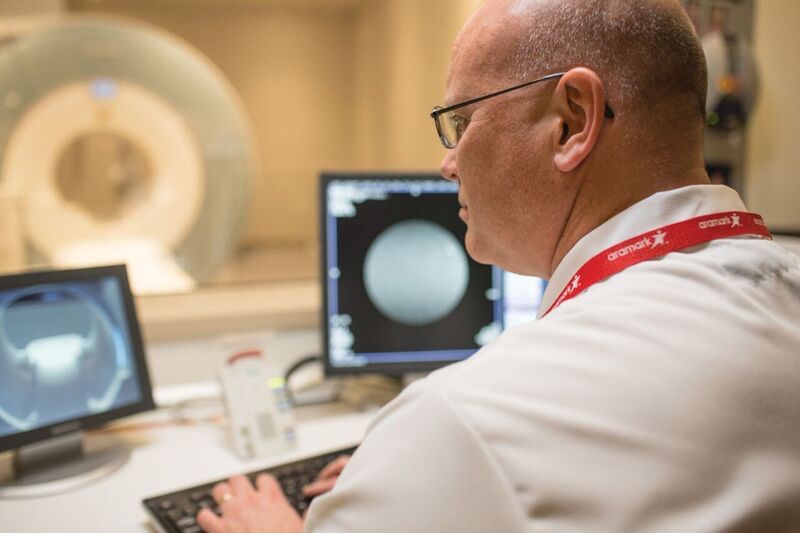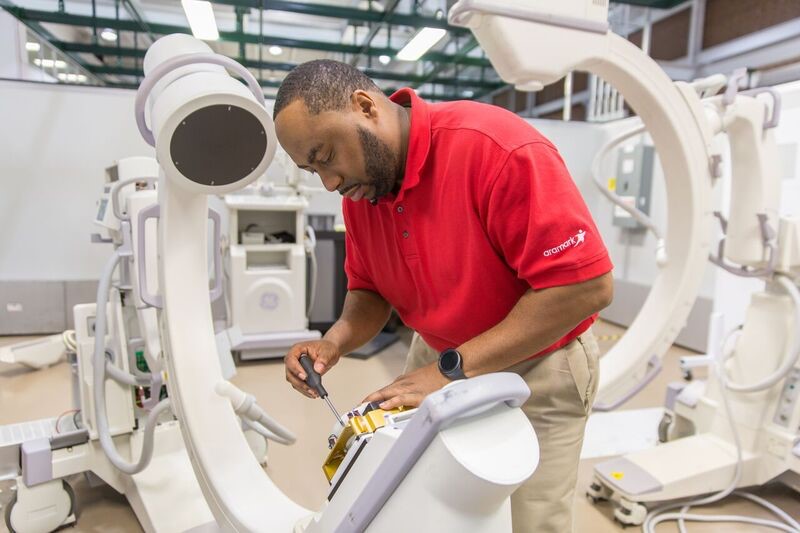Featured Stories
IBM and Aramark Join Forces to Speed Digital Healthcare Transformation
June 29, 2018
Written by Kristi McDermott and Juhi McClelland
In today’s virtually seamless world where anyone can shop, bank, or connect — anywhere, anytime, on any device — every sector has begun to leverage the benefits of digital connectivity. Only one, however, is doing so with life-saving goals in mind: Healthcare.
With these goals in mind, IBM and Aramark are helping accelerate this transformation by partnering to bring our collective industry experience and expertise to bear in the healthcare technology support and maintenance process.

The healthcare sector faces challenges many others don’t — including stringent regulation, privacy concerns, and steeply rising costs — yet we are already seeing how the benefits of the digital revolution can profoundly transform this sector as well.
For example, there are tremendous opportunities as service delivery models evolve from “quantity-based,” “fee-for-service” models to patient-centric, value-based care systems, as well as clinical IT rapidly moving towards more centralized and connected enterprise IT infrastructures. Once siloed clinical devices can now be connected with their data, aggregated into paperless files to help medical professionals work faster and more efficiently to improve patient outcomes, while lowering cost.
The integration of smartphones, tablets, wearables, and other WiFi-enabled devices into the healthcare process, as well as the accessibility of electronic medical records (EMR) over secure networks, allows medical professionals to administer more personalized patient treatment.
Thanks to AI and data analytics tools capable of interpreting massive volumes of medical data in a fraction of the time that humans can, doctors can now retrieve a patient’s medical history more quickly in any location to analyze potential treatment options in real-time. Collaborative communication tools and real-time location sensing devices are uniting clinical IT and enterprise IT networks to enable greater connectivity between medical devices and clinical applications in the data center.
But along with these advances come new questions: what happens when these devices malfunction, or need software patches or updates? How can we better defend against cyber threats and enhance security to keep technology running smoothly? How is patient care impacted by a malfunctioning medical device or other disruption?

IBM and Aramark are partnering to address these questions as well. Together, we will deliver a variety of support solutions to help optimize, maintain, secure, and support the connected medical device ecosystems of today’s healthcare providers for the good of medical professionals and their patients. For example, our predictive analytics capabilities can help determine when an MRI or X-ray machine will reach the end of its lifecycle, and signal to a technician that repair or replacement is required to avoid any disruption to patient care.
As IBM and Aramark move forward together, we are reminded that this partnership is built on a collective commitment to help healthcare providers deliver greater efficiencies to their clinical and enterprise IT support, optimize system reliability through proactive support, and better address cybersecurity risks through regular, comprehensive assessments of critical network infrastructure.
Our two organizations are also encouraged that these types of support solutions will continue to evolve in the months and years ahead to meet future clinical enterprise IT challenges. All of these technical advancements are helping healthcare providers, stakeholders, and advocates communicate more easily in the workplace, monitor a patient’s progress more accurately, and treat them more effectively. By leveraging the innovation of our two companies, we can help healthcare reach its full digital potential for perhaps the most important goal of all: improving lives.
For more information on IBM healthcare technology support solutions, visit https://ibm.co/2nnV6hb.
This story first appeared on the IBM THINK Blog.